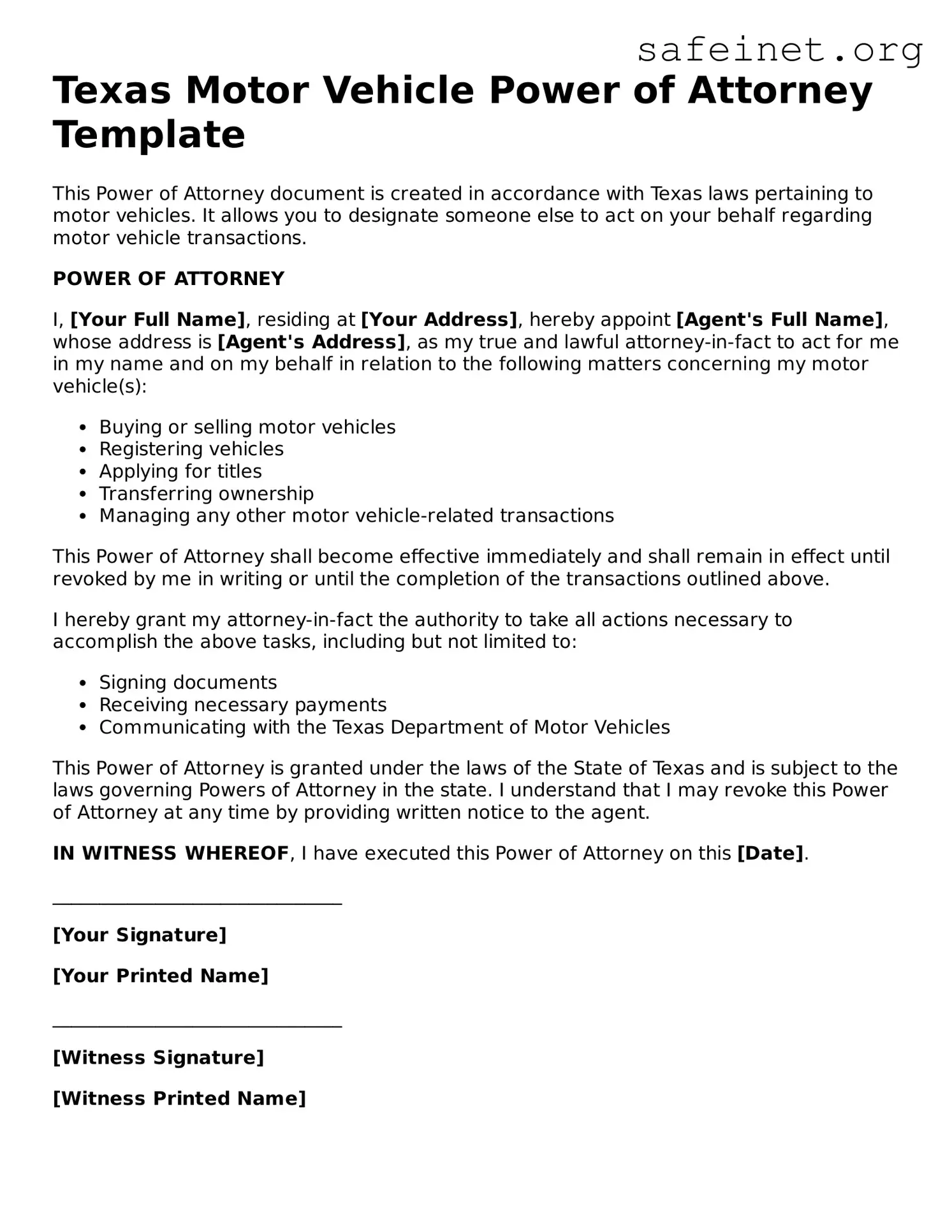What is a Texas Motor Vehicle Power of Attorney form?
The Texas Motor Vehicle Power of Attorney form is a legal document that allows one person to authorize another individual to act on their behalf in matters related to vehicle transactions. This could include buying, selling, or registering a vehicle. It can be particularly useful when the vehicle owner is unable to attend a transaction in person, allowing for a smooth process without any delays.
Who should use this form?
This form is designed for anyone needing to delegate authority concerning their vehicle dealings. For example, if you are unable to be present for the sale of your car due to travel or health reasons, you might appoint a trusted friend or family member as your agent. It’s also useful for businesses that manage a fleet of vehicles and require an appointed person to handle transactions.
What powers can be granted through this form?
The powers granted can vary depending on the specific needs of the vehicle owner. Typically, the form allows the agent to sign documents, transfer titles, register vehicles, or even obtain copies of vehicle records. It is important to clearly outline the extent of the authority in the document to ensure that the agent can perform only the tasks you permit.
How do I complete the Texas Motor Vehicle Power of Attorney form?
To complete the form, you need to provide the names and addresses of both the vehicle owner and the appointed agent. Include details about the vehicle, such as the make, model, and Vehicle Identification Number (VIN). Afterward, both parties must sign and date the form. Make sure to retain copies for your records and consider having it notarized for added security, even though notarization is not required.
Is there a fee associated with using this form?
No specific fee is required to fill out the Texas Motor Vehicle Power of Attorney form. However, if you choose to have the document notarized, there may be a small charge for that service. Additionally, fees might arise from any transactions you handle through this authority, such as title transfers or registration costs.
How long does the Power of Attorney remain effective?
The effectiveness of the Power of Attorney can vary based on the conditions included in the document. Generally, it remains valid until you revoke it, complete the transactions you authorized, or pass away. If the authority was granted for a specific purpose, it may cease once that purpose is fulfilled. Be sure to communicate clearly with your agent regarding the time frame and any limitations associated with the powers granted.
